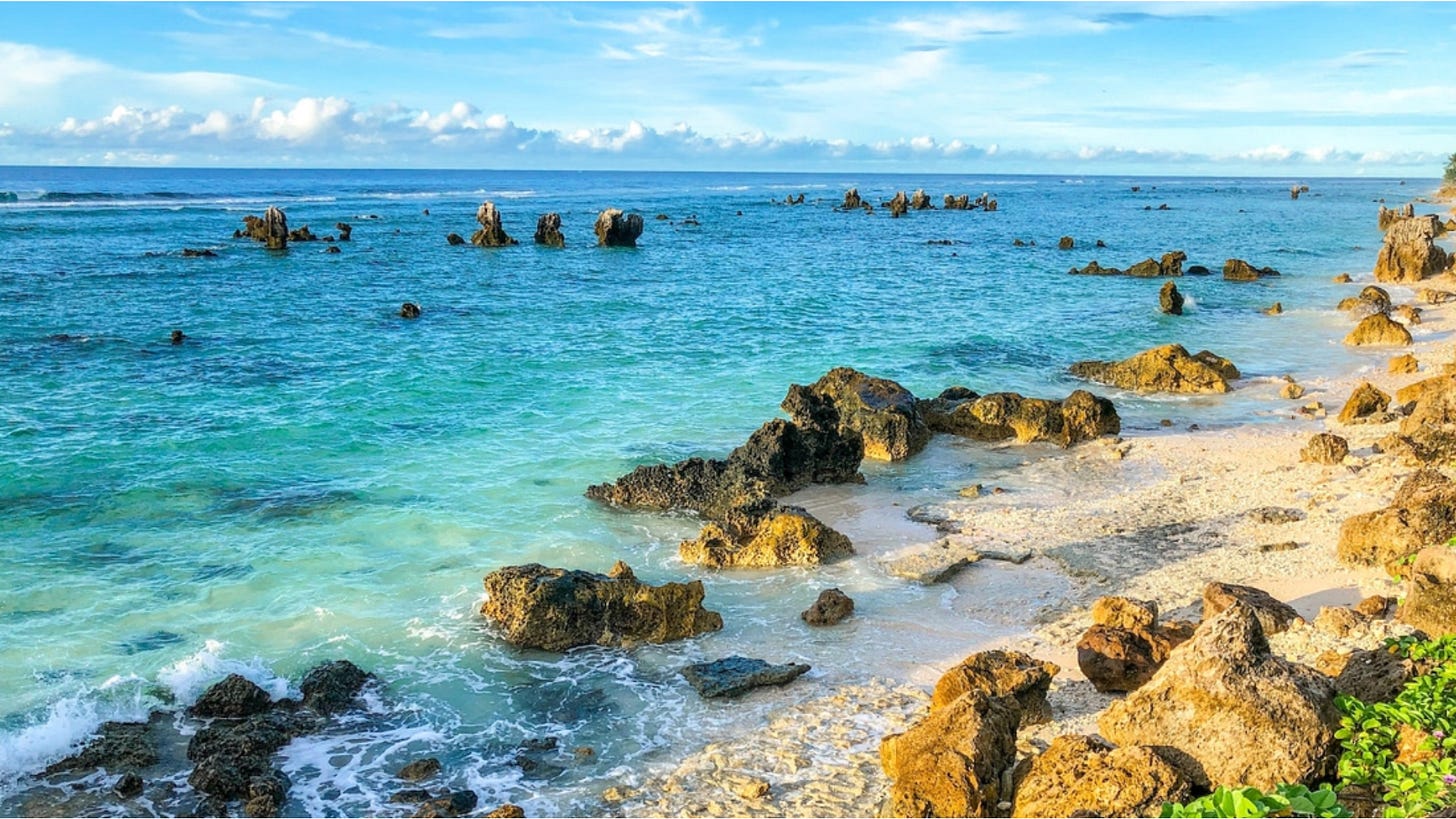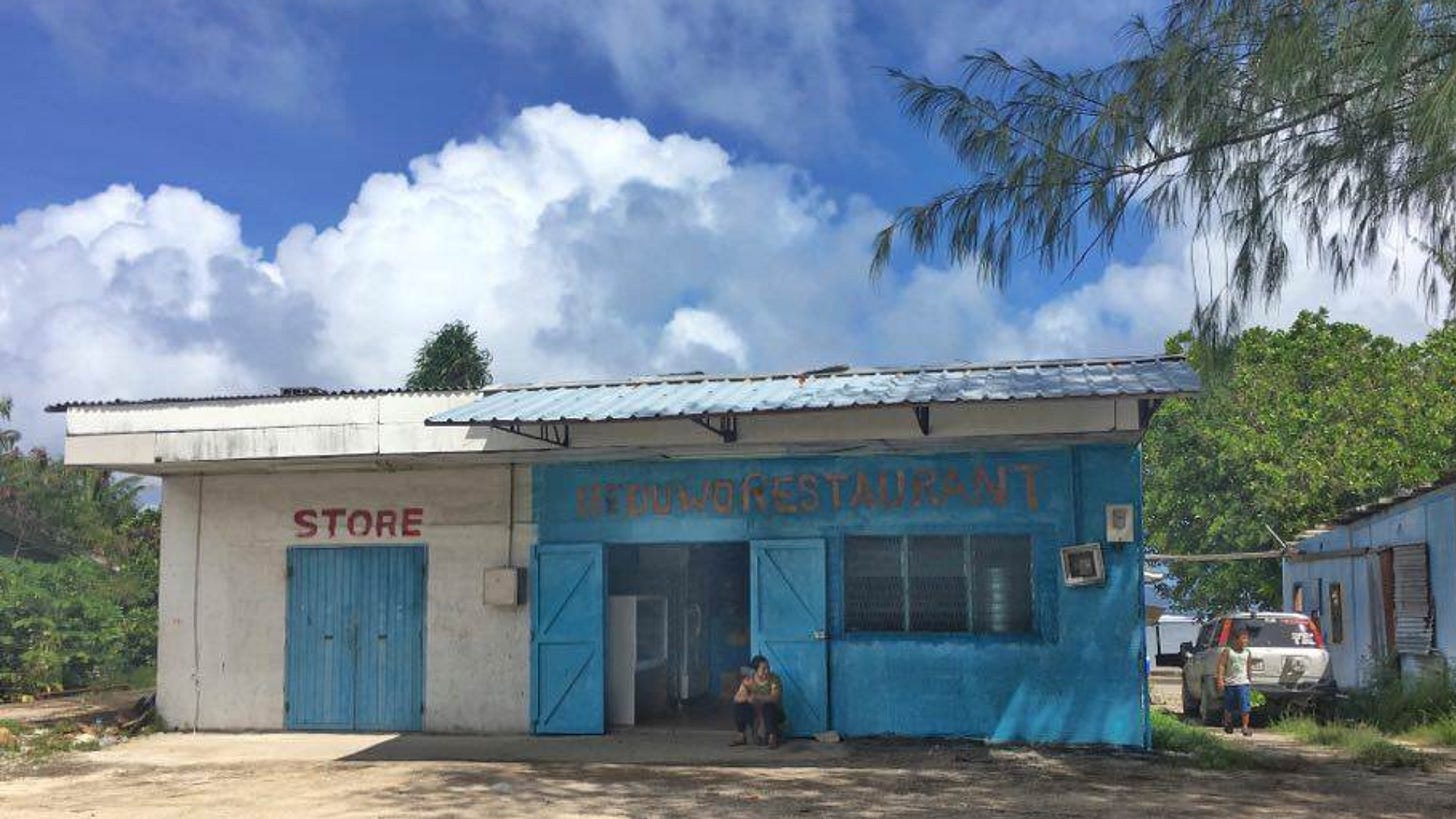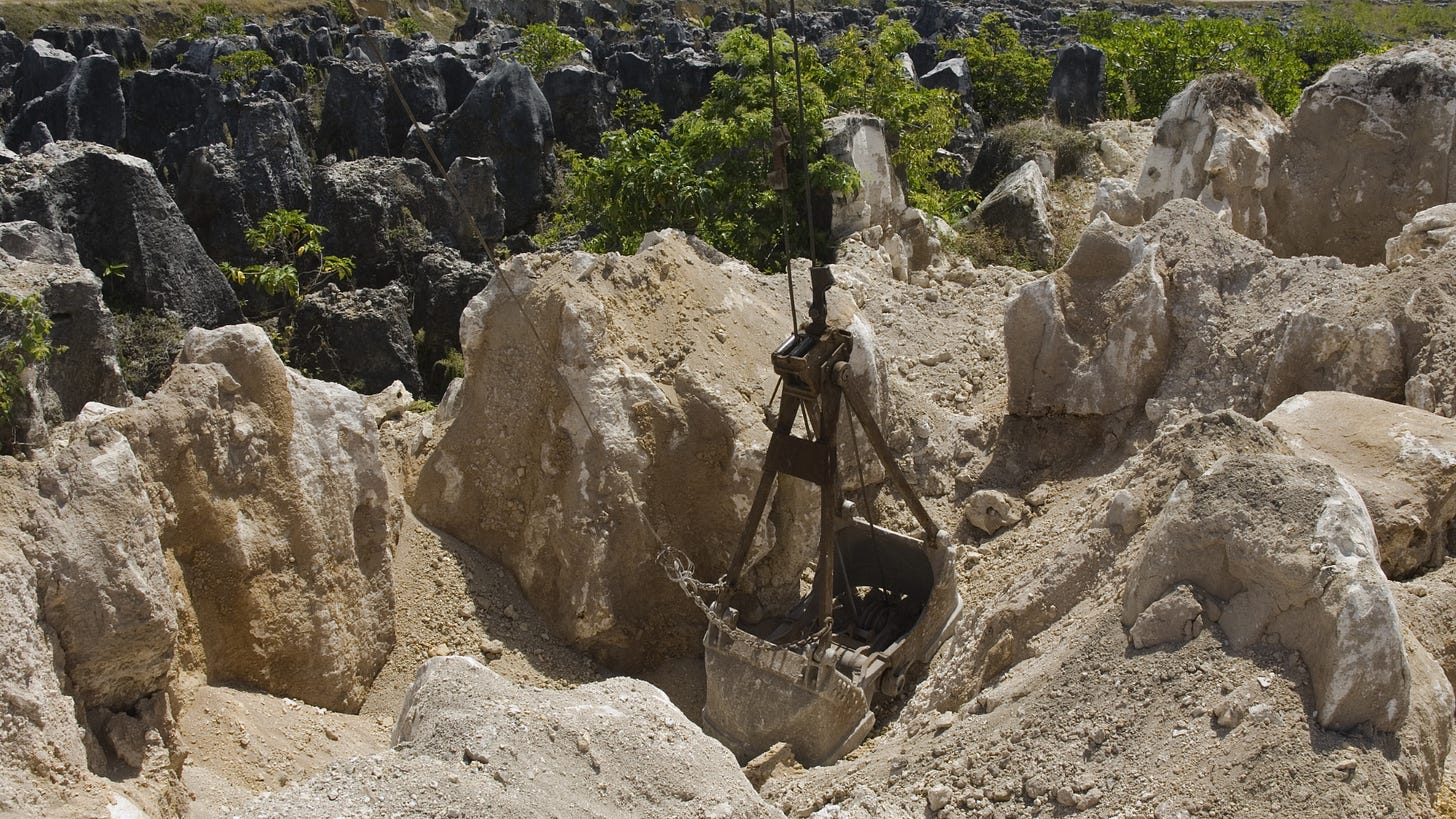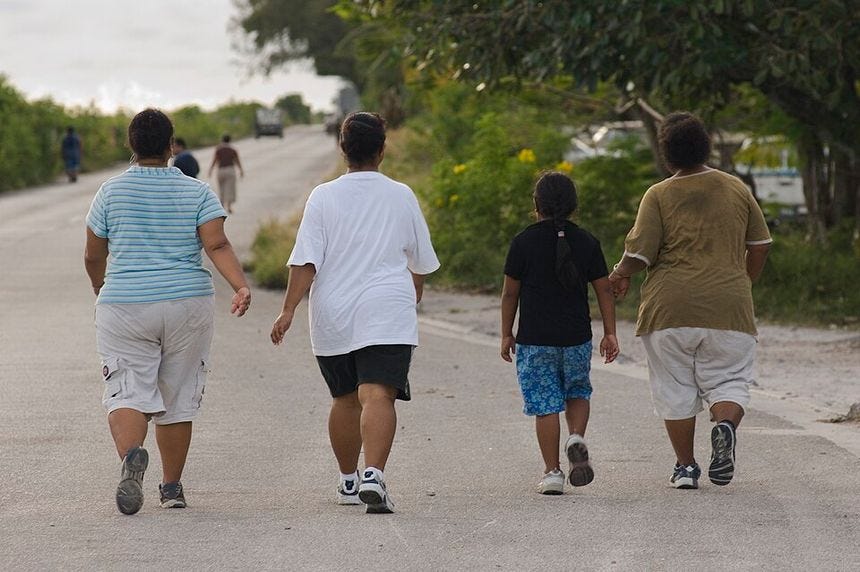Tomorrow will take care of itself. Or will it?
The tiny island of Nauru was once the world’s wealthiest microstate. Now it's on the verge of collapse; a cautionary tale of squandered bird poop fortunes and shrinking shorelines.

In the early 80s, James Bop, a former finance minister of Nauru, summed up his island’s attitude toward the future in a single phrase: “Tomorrow will take care of itself.”
At the time, life on the tiny Pacific island was so good it would have been hard to argue with him. The 8.5 square miles of jagged limestone, fringed by a narrow ribbon of green — 25 miles south of the Equator and 200 miles from its closest neighbor — was then the richest independent nation in the world, per capita.
The reason for the riches boiled down, simply, to bird droppings. Guano, compacted over millennia on the island’s raised coral plateau, was mined as phosphate and sold to fertilize farms across the globe.
In 1968, Nauru gained independence from a United Nations trusteeship administered by Australia, New Zealand, and the United Kingdom, and soon took full control of its mining operations. Phosphate exports sent national income soaring, and by the time New York Times journalist Robert Trumbull visited in 1982, he described a fairy-tale scene of marble floors, air-conditioned comfort, and nearly expense-free living for the island’s populace.
Residents lived in government-built houses that they rented for less than US $5 a month. Schooling, healthcare, electricity, and even long-distance medical evacuation flights to Australia were free. Taxes didn’t exist — then-President Hammer DeRoburt declared them “unsuited to the Nauruan temperament.”
Nauruans didn’t mine the phosphate themselves; laborers came from Kiribati, Tuvalu, the Philippines, and China. The island’s own people, fewer than 5,000 at the time, worked in government or for the phosphate corporation. Most goods were imported, and the “ultimate welfare state” ensured no one went without.
The government created the Nauru Phosphate Royalties Trust, a sovereign wealth fund meant to safeguard the windfall. At its height, it was worth around AUD $1 billion, with a gleaming 52-story skyscraper in Melbourne — Nauru House — anchoring the investment portfolio.
There were warnings: that the phosphate would be gone within a decade, leaving most of the island a barren moonscape unfit for farming, housing, or restoration. But the offshore nest egg was meant to guarantee prosperity forever.
Instead, the trust became a case study in how fast resource wealth can evaporate. Mismanagement, corruption, and reckless spending drained its reserves. Creditors seized properties. One notorious investment — a lavish London stage production of Leonardo the Musical — flopped so badly it became shorthand for squandered fortune. By the early 2000s, the fund had collapsed and Nauru was deeply in debt.

Forty years on, the idea that “tomorrow will take care of itself” reads like hubris. The phosphate ran out, the investments imploded, the Melbourne skyscraper was sold, and the trust funds vanished.
As Nauru’s fortunes unraveled, the country began monetizing the one thing it still controlled: its sovereignty. In the 1990s, it reinvented itself as a tax and money-laundering haven, issuing offshore banking licenses and selling passports, even diplomatic ones carrying legal immunity. When clients began to include the Russian mafia and al-Qaida operatives, the plan was abandoned.
By 1998, Russia’s deputy central bank chairman estimated that $70 billion in Russian criminal funds had flowed through Nauru’s banks in that year alone. In 2002, the US Treasury blacklisted the country as a money-laundering jurisdiction, grouping it with Ukraine and imposing sanctions as severe as those leveled against Iraq. With other avenues closed, Australia stepped in with financial aid in exchange for Nauru hosting a controversial offshore detention center for asylum seekers, largely from Iran, Iraq, and Afghanistan, who were intercepted in the Pacific.
Today, a modest phosphate revival has given the economy a temporary pulse, but the fundamentals haven’t changed. Most of the island is uninhabitable. The population relies almost entirely on imported, processed food, resulting in the highest rates of obesity in the world. And now, Nauru is pinning its hopes on another extractive gamble — deep-sea mining — fast-tracked under a clause in international maritime law. The pattern is familiar: a resource promise, a scramble for quick profit, and little thought for the aftermath.
The threat of encroachment from rising sea levels is a genuine concern on the island. With this in mind, Nauru rolled out a new revenue generating scheme — a kind of ‘back to the future’ ploy to sell… you guessed it: citizenship.
Launched in February 2025, the world’s first “climate resilience” passport program offers Nauruan citizenship in exchange for US $105,000, pitched as a way to fund adaptation measures, including relocating Nauruans to more livable shores. The passport allows visa-free entry to 89 countries, including the UK, Ireland, the UAE, and Hong Kong.
The government hopes to raise more than US $5 million in the first year of the passport program and, eventually, as much as US $43 million — nearly one-fifth of total state revenue. However, six months in the results have been modest at best: only six approvals have been granted, covering two families and four individuals. The first was a German family of four living in Dubai, looking for a “Plan B” in uncertain geopolitical times. Officials insist that this time rigorous background checks are in place — one application has already been withdrawn after “adverse findings” were flagged.
For Nauru, the stakes are no longer measured in decades of resource extraction but in years, compounded by the shrinking habitability of the island itself. The climate passport scheme is as much an admission as it is a plan: that survival may depend on buying a way out, one new citizen at a time. It is the latest in a long line of improvised economies, each born from the ruins of the last, each carrying the hope that this time the windfall will last.
It turns out, tomorrow will take care of itself is no longer a strategy in the face of collapse — it’s a cautionary tale. Tomorrow came fast on Nauru, and today the island is dealing with the real world consequences of what happens when the guano hits the fan.




Reminiscent of lottery winners who end up declaring bankruptcy a few short years later 😂
That is an amazing story , pertinent to us all , as natural resources are squandered.